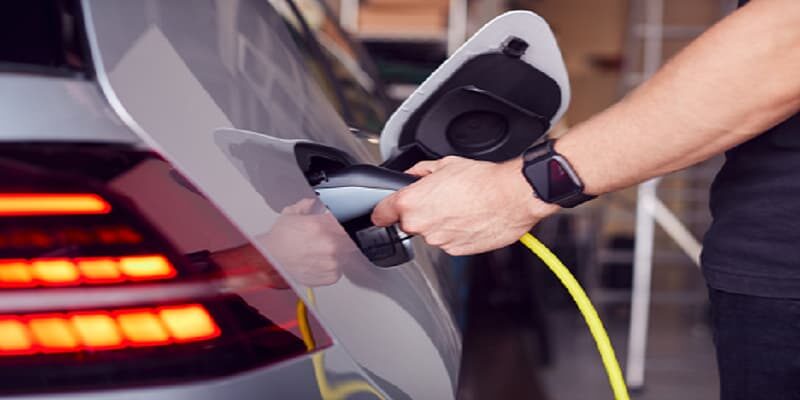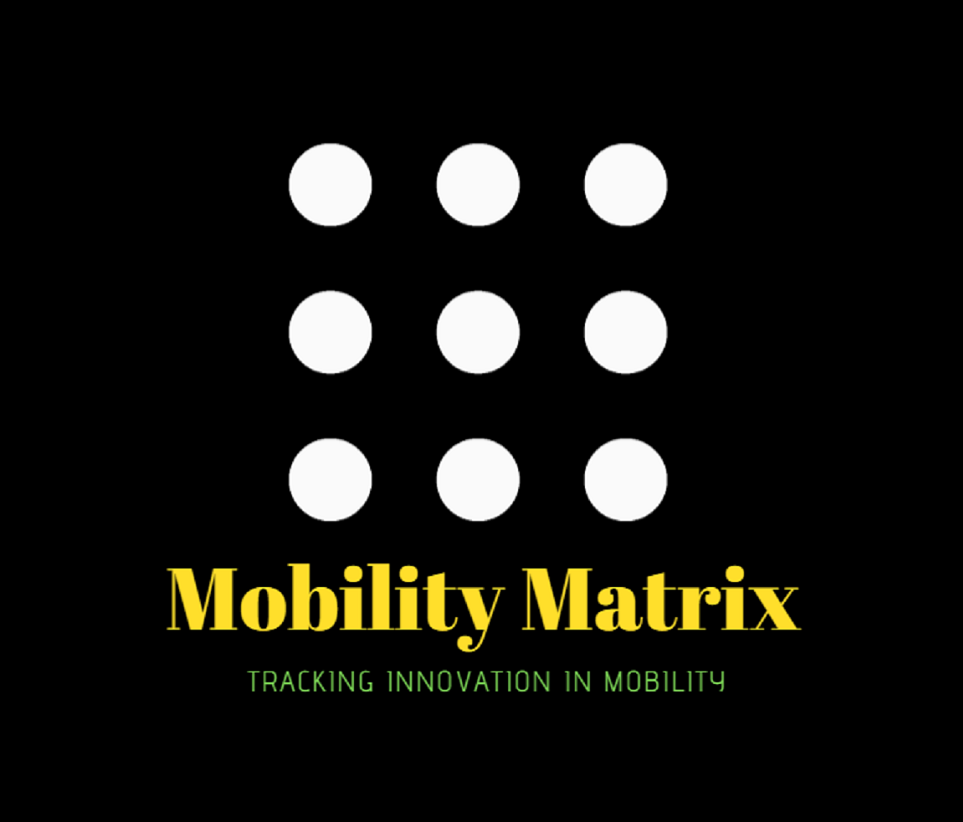
The post presents some important developments that took place this week in the field of Autonomous Vehicles, Connected Vehicles, Shared Mobility, Clean Mobility, and Research.
Biden plans to replace government fleet with electric vehicles
President Biden at the signing of Executive Order on strengthening American manufacturing said the federal government that owns a significant fleet of vehicles will be replacing them with clean, electric vehicles. The President said that these vehicles will be made in America by American workers, and thus will create a million autoworker jobs in clean energy. The government also plans to make it mandatory to have at least 50 percent of the components of vehicle made for the federal government made in America.
Strategic Partnership between Cruise and Microsoft
Cruise and General Motors have entered a long-term strategic relationship with Microsoft to accelerate the commercialization of self-driving vehicles. Microsoft also participated in $2 billion investment round in Cruise pushing its valuation up to $30 billion. Under the partnership, Cruise will use Azure, Microsoft’s cloud and edge computing platform, for its self-driving, all-electric, shared robotaxi service which is to be launched in near future.
The companies said in a Press Release that they will bring together their software and hardware engineering excellence, cloud computing capabilities, manufacturing know-how and partner ecosystem to transform transportation to create a safer, cleaner, and more accessible world for everyone.
Japanese automaker, Honda also announced that it will collaborate with Cruise and General Motors on self-driving vehicles for its autonomous vehicle mobility service (MaaS) business in Japan, based on the development and commercial agreements signed in October 2018. Cruise will be sending the first of its self-driving test vehicles to Japan and start development for testing this year.
Veoneer and Qualcomm enter into an agreement
Veoneer, an automotive technology company, and Qualcomm Technologies have signed an agreement under which the companies will collaborate on the delivery of scalable Advanced Driver Assistance Systems (ADAS), Collaborative and Autonomous Driving (AD) solutions.
The system integrates Veoneer’s perception and driving policy software stack and Qualcomm Snapdragon Ride ADAS/AD scalable portfolio of System on a Chip (SoC) and Accelerators. Veoneer and Qualcomm Technologies have worked together for several months to create a roadmap of a scalable, open ADAS and autonomous driving system that will be able to address the entire automotive OEM market with an integrated software and SoC platform.
Arriver, Veoneer’s dedicated software unit for the development of the complete perception and drive policy software stack, will also operate under specific information handling protocols and reporting structures as part of its collaboration with Qualcomm Technologies.
Shell to buy ubitricity
Shell has signed an agreement to buy 100% of ubitricity, a leading European provider of on-street charging for electric vehicles (EVs). The move represents a further step in Shell’s efforts to support drivers as they switch to lower-carbon transport. Subject to regulatory clearance, the deal is expected to be completed later this year.
Founded in Berlin, Germany, ubitricity operates in a number of European countries, and is one of the largest public EV charging network in the UK with over 2,700 charge points. The company has also established emerging public charging positions in Germany and France and has installed over 1,500 private charge points for fleet customers within Europe.
ubitricity works with local authorities to integrate EV charging into existing street infrastructure such as lamp posts and bollards. The result is EV charging that is affordable, accessible and convenient for anyone who wants to charge their EV while it is parked on the street. This solution is particularly useful for people who lack a private driveway but want to charge their EV overnight.
Ford to share connected car data with other manufacturers
As part of a landmark road safety data sharing agreement, Ford cars will share information about potential road safety incidents to help warn road users – including drivers of other manufacturer vehicles, as well as Fords – of hazards ahead.
Local Hazard Information connected car technology was introduced with the new Ford Puma in early 2020 that warned other Ford drivers of safety incidents. Now it is being extended to more drivers who will benefit from these warnings.
Led by the European Commission-backed Data for Road Safety partnership, the agreement follows a 16-month proof of concept during which tens of millions of Safety‑Related Traffic Information (SRTI) messages – such as broken-down vehicles, slippery roads or reduced visibility – were exchanged between different vehicles. Partners alongside Ford include BMW, Mercedes-Benz and Volvo, with the data-sharing ecosystem now open to new participants.
Westport Fuel Systems and Scania working on a direct injected Hydrogen engine research project
Scania and Westport Fuel Systems have agreed to commence a research project. Under the project, Westport will apply its HPDI 2.0 fuel system with hydrogen to the latest Scania commercial vehicle engine. Preliminary test results are expected in the second half of 2021.
The company believes that its specialty is working with gaseous fuels. Hydrogen use in an internal combustion engine with our HPDI fuel system could offer a cost-competitive pathway to reduce CO2 emissions from transportation. The learning from this research project will be used by the companies to provide the best possible offering to their customers.
Toyota Research Institute launches next phase of collaborative research with academic institutions
The Toyota Research Institute (TRI) it has selected 13 additional academic institutions to participate in the next five-year phase of its collaborative research program. These universities join MIT, Stanford and the University of Michigan which have worked with TRI over the last five years to expand the body of research into artificial intelligence (AI) with the goal of amplifying the human experience.
Through this program, TRI will lead 35 joint research projects focused on achieving breakthroughs around difficult technological challenges in TRI’s research areas: Automated Driving, Robotics and Machine Assisted Cognition (MAC).
Aurora and PACCAR collaborate on Autonomous Trucks
Aurora has entered into a global strategic partnership with PACCAR in preparation for the delivery of the Aurora Driver’s first application in trucking. This partnership combines PACCAR’s expertise in heavy-duty truck development, manufacturing, and sales with Aurora’s understanding of autonomous vehicle technology to bring a safe, efficient self-driving product to market quickly and deploy it broadly.
TomTom joins Autoware Foundation
TomTom has joined the Autoware Foundation. Autoware is a non-profit organization supporting open-source projects that accelerate the development of autonomous driving technology. The location technology company will support the Autoware Foundation by creating a turnkey open-source interface to TomTom AutoStream. AutoStream is a map delivery service that automatically streams the latest map to the car in real-time, ensuring automated vehicles drive with up-to-date map content. This will enable users and developers of Autoware to scale their applications by accessing TomTom’s global coverage of high definition maps.
ev.energy and Flexitricity partner
ev.energy has partnered with Flexitricity with the aim of forming aggregated balancing mechanism unit comprised of domestic electric vehicles (EVs). Using ev.energy’s smart charging app, electric vehicle owners can set a ‘ready by time’ to ensure their car is always ready when they need it. During the time before their car needs to be fully charged, ev.energy’s smart charging platform and Flexitricity’s automated platform will work in unison to ensure that the optimal charging strategy is deployed. This delivers much needed flexibility to grid and the lowest prices possible for the consumer.
(Based on News Reports and Press Releases)

